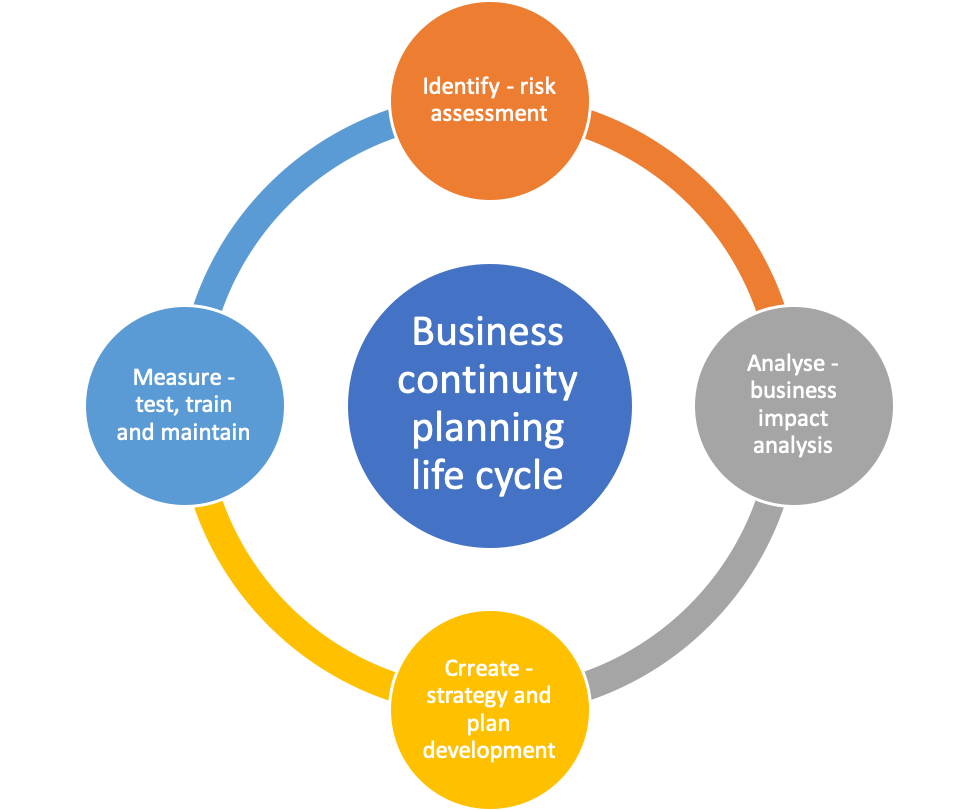Why business continuity planning matters.
Julian Lomas
Business continuity planning is about making sure that your organisation can cope if a major event happens that significantly disrupts your ability to deliver for your beneficiaries or funders. It could be a catastrophic event such as a flood, fire or terrorist attack or a major loss of systems or resources brought about by, for example, a flu (or other) epidemic, an IT failure or loss of use of a building (e.g. if asbestos is found).
While having a low probability of happening, business continuity events have major (and possibly catastrophic) impacts on your organisation, its beneficiaries and/or its funders/partners. Good plans will ensure that you can cope if and when such an event occurs and recover quickly afterwards. It’s not about sustaining business as usual but rather focusing on critical activities that will reduce the impact, avoid the most serious consequences and ensure the survival of your organisation.
In an increasingly uncertain world, business continuity planning is all the more important for all organisations but, more importantly, for your beneficiaries. It’s surprising how many of our clients have had business continuity events over the last 5-10 years, demonstrating that business contuinty planning is rarely a fruitless paper exercise.
Moreover, it’s not just about planning; testing your plans is essential. Research shows that having as business continuity plan will get you about 20% of the way towards an effective response but a regularly exercised plan will get you 80%+ of the way there. Investing time and effort in planning and testing the plans is, therefore, vital (and could make the difference between life and death in some cases).
My colleague John Eary, of JEC Professional Services offers comprehensive business continuity and disaster recovery consultancy services, including designing and facilitation of exercises. Business Continuity Made Simple, an article penned by John, provides a great introduction to the principles of business continuity and I commend it to you.
We strongly recommend that all charities and social enterprises, no matter how large or small they are, take business continuity planning seriously to ensure that, should a major event occur, you can do the best by your beneficiaries and stakeholders. It really is worth it.

